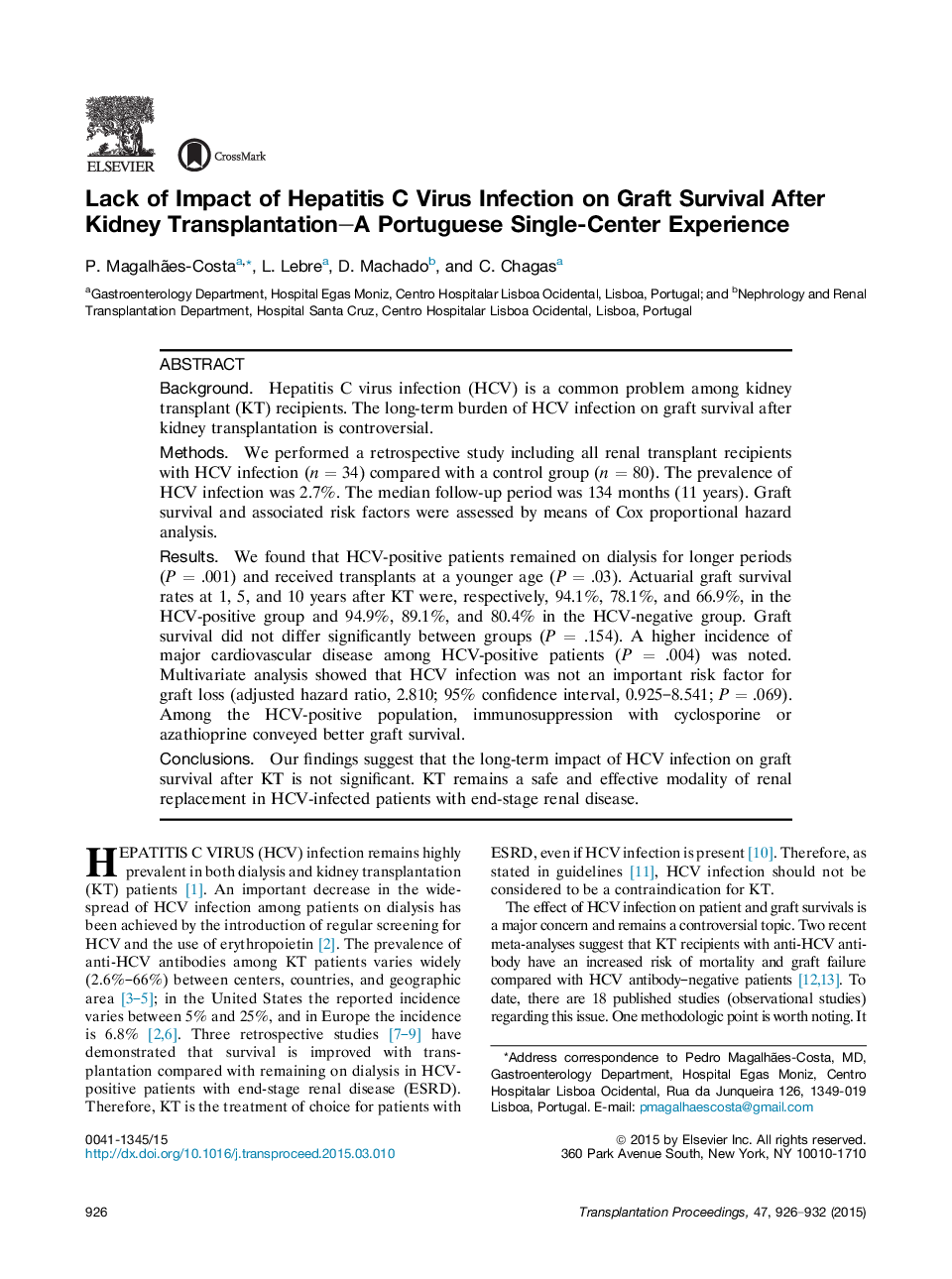| Article ID | Journal | Published Year | Pages | File Type |
|---|---|---|---|---|
| 6247366 | Transplantation Proceedings | 2015 | 7 Pages |
BackgroundHepatitis C virus infection (HCV) is a common problem among kidney transplant (KT) recipients. The long-term burden of HCV infection on graft survival after kidney transplantation is controversial.MethodsWe performed a retrospective study including all renal transplant recipients with HCV infection (n = 34) compared with a control group (n = 80). The prevalence of HCV infection was 2.7%. The median follow-up period was 134 months (11 years). Graft survival and associated risk factors were assessed by means of Cox proportional hazard analysis.ResultsWe found that HCV-positive patients remained on dialysis for longer periods (P = .001) and received transplants at a younger age (P = .03). Actuarial graft survival rates at 1, 5, and 10 years after KT were, respectively, 94.1%, 78.1%, and 66.9%, in the HCV-positive group and 94.9%, 89.1%, and 80.4% in the HCV-negative group. Graft survival did not differ significantly between groups (P = .154). A higher incidence of major cardiovascular disease among HCV-positive patients (P = .004) was noted. Multivariate analysis showed that HCV infection was not an important risk factor for graft loss (adjusted hazard ratio, 2.810; 95% confidence interval, 0.925-8.541; P = .069). Among the HCV-positive population, immunosuppression with cyclosporine or azathioprine conveyed better graft survival.ConclusionsOur findings suggest that the long-term impact of HCV infection on graft survival after KT is not significant. KT remains a safe and effective modality of renal replacement in HCV-infected patients with end-stage renal disease.
